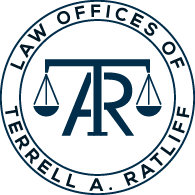Suffering a personal injury can be a life-altering experience. Whether it’s the result of a car accident, a slip and fall, or medical negligence, the aftermath can be overwhelming—especially when dealing with physical pain, emotional stress, and mounting expenses. If you’re injured in New Jersey, taking the right steps immediately after the incident is crucial for your recovery and any potential legal claim.
Here’s a step-by-step guide to help New Jersey victims protect their health, rights, and potential compensation.
Step 1: Prioritize Your Health – Seek Medical Attention Immediately
Your health and safety are the most important concerns. Even if you believe your injuries are minor, it’s vital to get evaluated by a medical professional. Some injuries—like concussions, internal bleeding, or soft tissue damage—may not be immediately apparent but can become serious over time.
Tip: Medical records will also serve as critical evidence if you pursue a personal injury claim.
Step 2: Report the Incident
Depending on the nature of the injury, report it to the proper authorities:
- Car accident? Call the police and file an official report.
- Slip and fall in a store or public place? Notify the property manager or owner.
- Workplace injury? Inform your employer and follow OSHA or workplace procedures.
Documentation of the incident helps create a verifiable timeline and supports your case.
Step 3: Gather Evidence
Collect as much information as possible at the scene. This may include:
- Photos or videos of the accident scene, your injuries, and any property damage.
- Contact information of witnesses.
- Any relevant documents like incident reports, emails, or surveillance footage.
The stronger your evidence, the better your chances of proving negligence.
Step 4: Avoid Speaking with Insurance Adjusters (Alone)
Insurance companies often try to minimize payouts. An adjuster may contact you soon after your injury, offering a quick settlement. Do not accept or sign anything without legal advice.
Even seemingly harmless statements can be used against you.
Step 5: Contact a New Jersey Personal Injury Attorney
Navigating the legal process alone can be difficult. A skilled New Jersey personal injury lawyer can:
- Evaluate your case.
- Handle communications with insurance companies.
- Investigate liability and damages.
- Fight for fair compensation for medical bills, lost wages, pain and suffering, and more.
Time is critical—New Jersey’s statute of limitations for personal injury claims is typically two years from the date of the injury.
Step 6: Follow Your Doctor’s Treatment Plan
Do not skip appointments or ignore medical advice. Consistently following your treatment plan shows that you are taking your recovery seriously and supports your injury claim.
Failure to follow treatment could be used by the defense to reduce your compensation.
Step 7: Keep Records of Everything
Maintain a file of all documents related to your injury and recovery:
- Medical bills
- Prescriptions
- Lost wage documentation
- Personal journal entries about your pain, limitations, and emotional distress
This comprehensive record strengthens your case and helps calculate damages.
Final Thoughts: Take Control of Your Recovery and Rights
Being injured due to someone else’s negligence is frustrating and unfair—but you don’t have to go through it alone. Taking the right steps after a personal injury not only helps you heal but also protects your legal rights and financial future.
If you or a loved one has been injured in New Jersey, reach out to a trusted personal injury attorney to discuss your options. The sooner you act, the stronger your case can be.
Need Help Now?
At the Law Office of Terrell A. Ratliff, we fight for injury victims across New Jersey. We offer free consultations and you don’t pay unless we win your case. Contact us today to learn how we can help you move forward.
